Learning instruction to cultivate “the power to solve”Practice to increase students’ interest in learning
In 6 years, students will acquire the skills to bring into practice the school motto: “Become a man and serve”. The school’s unique curriculum will not only provide basic academic skills for each subject, but will also provide academic skills to pursue career paths after graduation, centering on university entrance examinations.
6 year education program
Foundation period
- Establishment of basic academic ability
- Development of home-learning habits
- Establishment of lifestyle habits
We aim at helping our students generate a positive attitude towards studying and establish basic academic ability. The homeroom teacher will assess the home-learning situation and individual life pace in order to help students establish basic lifestyle habits.
Establishment period
- Improve learning motivation
- Develop learning skills according to proficiency level
- Improvement of career learning
Students are divided into advanced and standard classes according to grades. In addition, English and mathematics are taught in classes according to proficiency levels, and some high school content is studied in advance. We will firmly establish each student’s scholastic ability while increasing their willingness to learn.
Development period
- Choice of elective courses according to individual plan
- Fostering application skills that can respond immediately to the exam
- Implementation of career guidance with a clear purpose of study
There are many elective courses and classes for each degree of difficulty designed to help each student embark on their individual career path. Utilizing external mock tests, we aim to develop application skills that can be used for exams. We strive to cultivate solid academic ability by actively involving not only teachers but also other participants in charge of courses and career guidance.
6-year curriculum (number of class hours per week)
- 1st Grade
-
- Japanese (4)
- Society (3)
- Mathematics(5)
- Science(4)
- Music(2)
- Art(2)
- Health and Physical Education(3)
- Technology / Home Economics(2)
- English(6)
- Bible(1)
- comprehensive learning(1)
- LHR(1)
- 2nd Grade
-
- Japanese(4)
- Society(4)
- Mathematics(5)
- Science(4)
- Music(1)
- Art(1)
- Health and Physical Education(3)
- Technology / Home Economics(2)
- English(6)
- Bible(1)
- Global Citizen Course*1(1)
- LHR(1)
- 3rd Grade
-
- Japanese(4)
- Society(4)
- Mathematics(5)
- Science(4)
- Music(1)
- Art(1)
- Health and Physical Education(3)
- Technology / Home Economics(2)
- English(6)
- Bible(1)
- Improve writing skills*1(1)
- Global Citizen Course*1
- LHR(1)
- 4th Grade
-
- National Language Comprehensive(4)
- Geography A(2)
- Mathematics I(4)
- Mathematics A(2)
- Physics foundation(2)
- Chemistry foundation(2)
- Biology foundation(2)
- Physical Education(3)
- Health(1)
- Art(2)
- Communication English I(4)
- English Expression I(3)
- Society and Information(2)
- Bible(1)
- Period for Inquiry-Based Cross-Disciplinary Study(1)
- LHR(1)
- 5th Grade
-
- World History A(2)
- Physical education(2)
- Health(1)
- Communication English II(4)
- English Expression II(4)
- Home foundation(2)
- Bible(1)
- LHR(1)
- Period for Inquiry-Based Cross-Disciplinary Study(1)
- Elective(18)*2
- 6th Grade
-
- Physical education(3)
- Communication English III(7)
- Bible(1)
- LHR(1)
- Period for Inquiry-Based Cross-Disciplinary Study(1)
- Elective(20)*3
*2 (5th grade selection)
[Required selection①]● Modern sentence B ● Classical B ● Mathematics II ● Mathematics B
[Required selection②]● Politics / Economics ● Chemistry
[Required selection③]● World History B ● Japanese History B ● Geography B ● Physics ● Biology
[Free Choice Seminar]● Language Special Lecture ● Mathematics II (Humanities) ● Mathematics IIB Special Lecture α ● Practical Computing
*3 (6th Grade Selection)
[Required selection①]● Lecture on contemporary writing ● Classical special lecture ● Mathematics III ● Mathematics B (Humanities) ● Mathematics IA special lecture ● Mathematics IIB special lecture β ● English Writing
[Required selection②]● Political and economic special lecture ● Physical special lecture ● Biology special lecture ● English special lecture α
[Required selection③]● World history special lecture ● Japanese history special lecture ● Geography special lecture ● Chemistry special lecture ● English special lecture β
[Required selection④]● Modern society ● Ethics
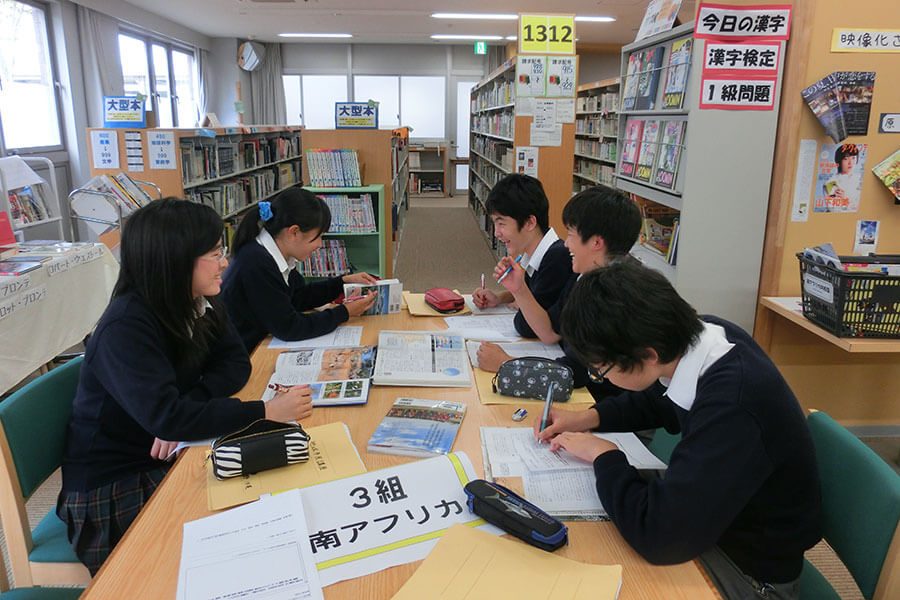
Original class “Global Citizen Course”
This course is designed to help learners gain an understanding of multi-culturalism and multi-cultural coexistence and to act independently in order to become members of a “sustainable society”, which is a global issue.
In the second year, students learn about the countries of the world from a religious point of view and deepen their learning in groups.
Third graders use SDGs as a tool to understand and study global issues and problems through personal exploration activities.
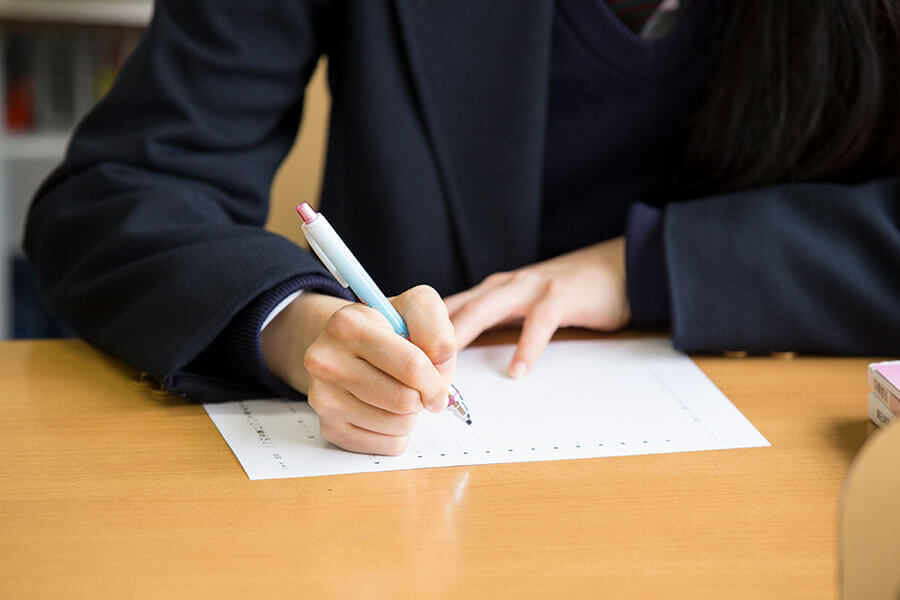
Morning homeroom test
In order to establish basic scholastic ability, junior high school students use their early homeroom time to practice Japanese (kanji) and mathematics (basic ability). A passing score is set, and if the standard is not met, follow-up examinations and supplementary lessons are conducted and follow-up is conducted.
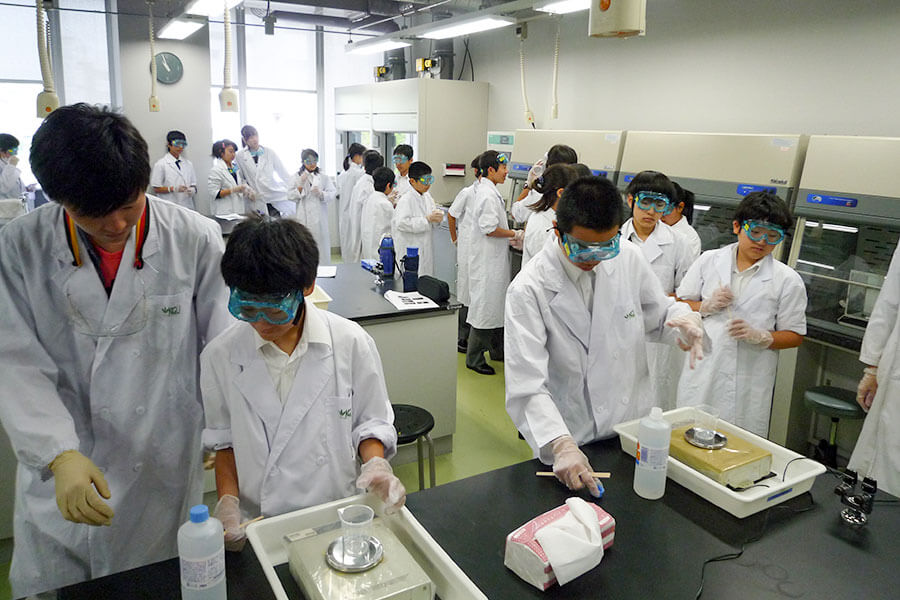
Collaboration with Kanto Gakuin University
We develop relations with our neighboring universities and conduct educational activities in cooperation with them. In particular, at the University Science Experiment Course, junior high school students go to the university laboratory to receive direct guidance from professors and conduct experiments using the state-of-the-art facilities.
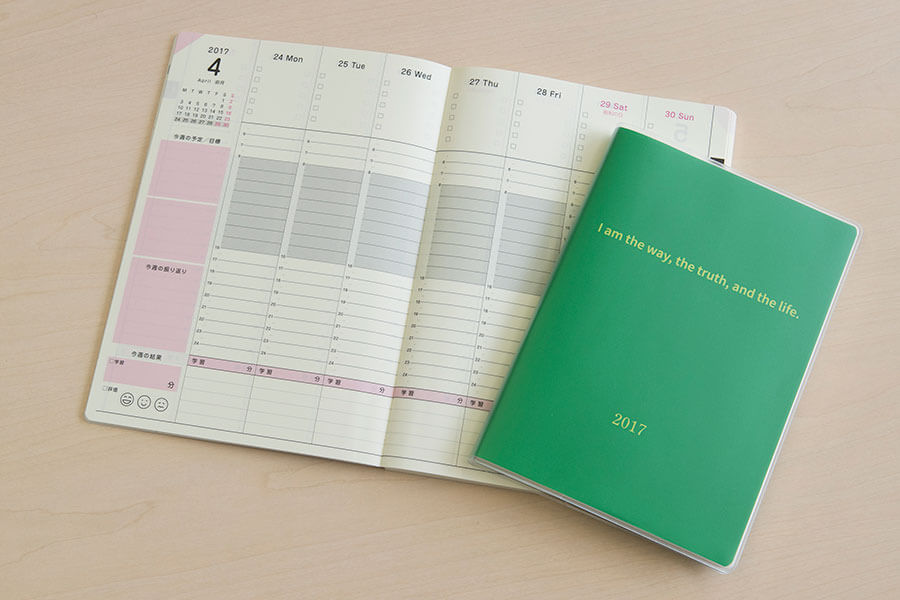
Utilization of original notebook
All students use the school’s original notebook that allows them to write a weekly schedule, keep a record of learning plans and interviews for future steps. The group teacher regularly checks the notebook and checks the state of each student.
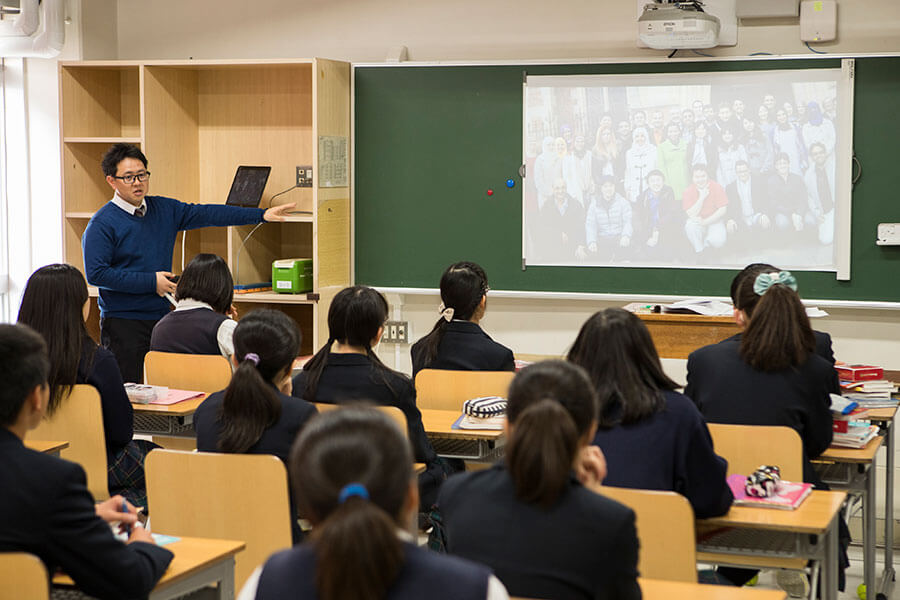
Implementation of supplementary classes and lectures
We offer supplementary lessons and supplementary classes to help students overcome weak subjects and improve their ability. Junior high school students mainly focus on English and mathematics, and high school students take courses aimed at preparing their university entrance examinations. Furthermore, during long holidays such as summer vacation, we will provide supplementary lessons and supplementary classes to improve scholastic ability.
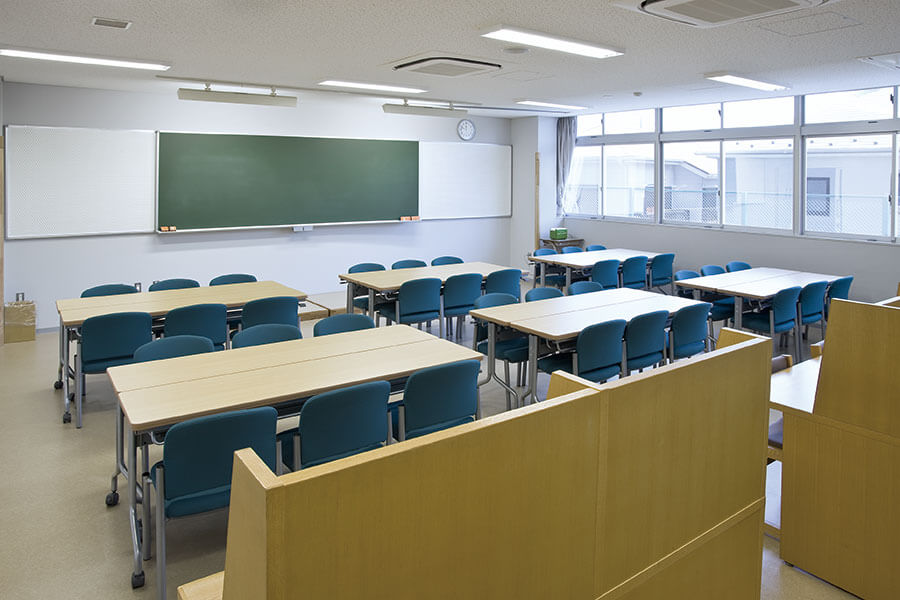
Self-study room / assist room
A self-study room is opened in the morning and after school to create an environment where students can study calmly. High school students can use the self-study room during the day and evening. There is also an assist room in front of the staff room, where students can ask teachers for personalized assistance.
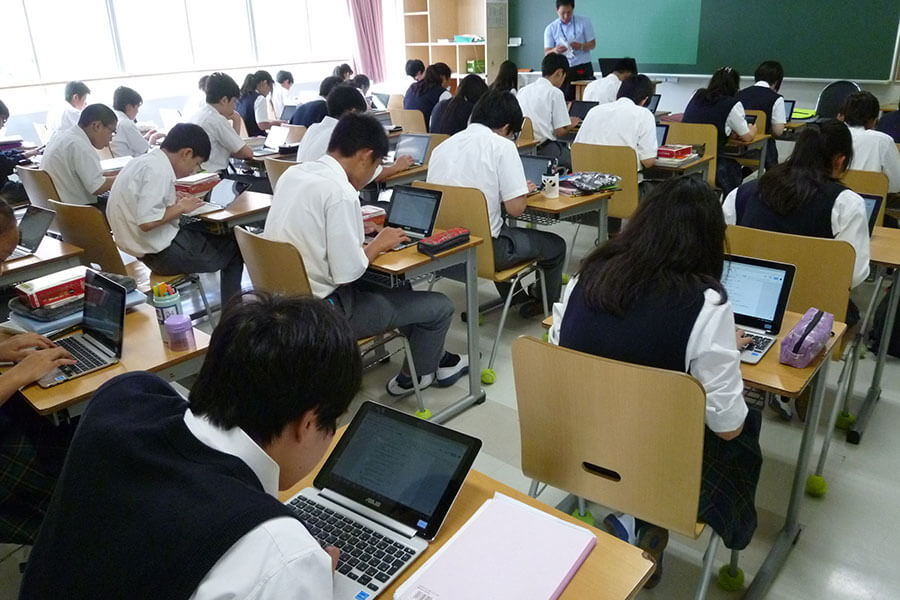
Chromebook
Second to fourth-year students use personal Chromebooks, which are widely used not only for classes, but also for learning online materials, submitting reports, and receiving daily information. By learning computer skills (such as typing and media literacy) we are responding to our increasingly information-oriented society. These skills also help with Computer Based Testing, which is being introduced in university entrance examinations.
